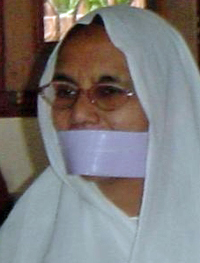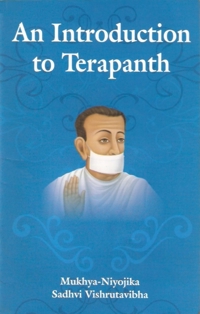The Anuvrat Movement is a new movement for the development of moral values in day-to-day life. Acharya Shri Tulsi started it on 1st March 1949 at Sardarshahar. Anuvrat is free from discriminations in the name of caste, colour and creed. It never interferes with, but rather ignores, personal religious faith. Its goal is the development of personal and social morality through the adherence to a simple moral code of conduct. The code’s rules and regulations are as follow:
- I will not willfully kill any innocent creature.
- I will not commit suicide.
- I will not commit feticide.
- I will not attack anybody.
- I will not support aggression.
- I will endeavour to bring about world peace and disarmament.
- I will not support aggression.
- I will not take part in violent agitations or in any destructive activities.
- I will believe in human unity.
- I will not discriminate on the basis of caste, colour, sect etc., nor will I treat anyone as an untouchable.
- I will practice religious tolerance.
- I will not harm others in order to serve any ends.
- I will not practice deceit.
- I will not harm others in order to serve any ends.
- I will set limits to the practice of continence and acquisition.
- I will not resort to unethical practices in elections.
- I will not encourage socially evil customs.
- I will lead a life free from addictions.
- I will not use intoxicants like alcohol, hemp, heroin, tobacco
- I will always be alert to the problems of keeping the environment pollution-free.
- I will not cut down trees.
- I will not waste water.
- I will not cut down trees.
Acharya Shri Tulsi himself, as well as hundreds of his disciple monks and nuns, undertook journeys on foot through out every part of India in order to propagate this code of conduct. As a result, a powerful atmosphere of morality and optimism was created throughout India and beyond. This movement has given birth to some general precepts:
- The observance of a moral code of conduct should take precedence over the observance of rituals in the field of religion.
- Spiritually and ethics should take precedence over narrow sectarian norms, the former being more universal in character.
- Practice of dharma should not aim at attaining happiness in the life hereafter, but should be concerned with solving the present-day life problems which cause conflict and violence etc., in human relations.
Anuvrat is, in fact, philosophy of life and the seed for religious revolution. It has, for instance, contributed much in solving the problems of castism and sectarianism. By following its basic values, an individual can lead a life of peace and can contribute to social betterment.
Being influenced by this ideology of Anuvrat, Dr. Rajendra Prasad said, “Acharya Shri Tulsi is performing an important work through the propagation of Anuvrat in our country. Everybody wishes for the success of Anuvrat Movement. If I am offered any past in this movement, I will like to accept it as ‘its supporter’.”
 Sadhvi Vishrut Vibha
Sadhvi Vishrut Vibha

